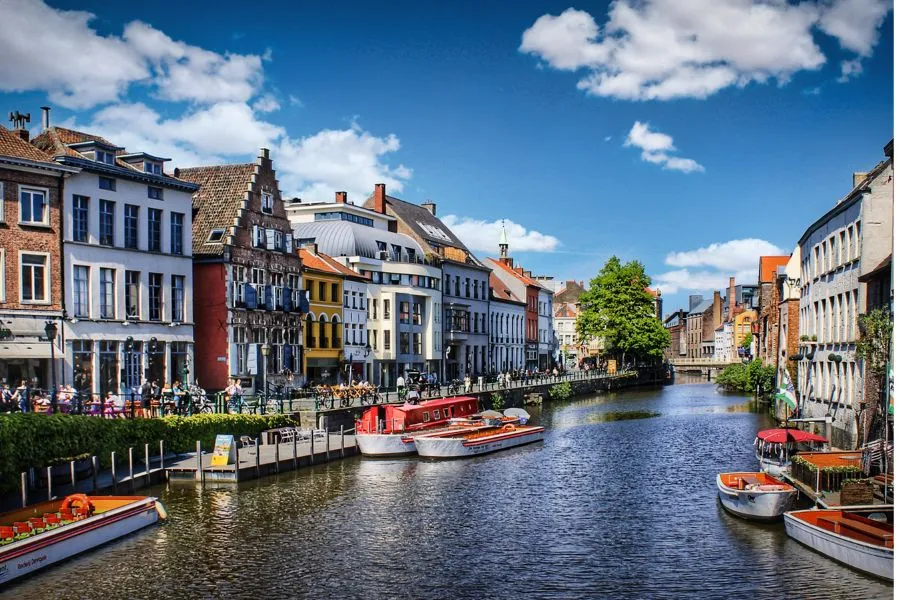If you’ve ever tangled with European visa bureaucracy, you’ll understand why the idea of a 15-day work permit process sounds almost too good to be true. But in 2025, Belgium—more specifically, the Flemish region—is flipping the script. With one bold policy shift, it’s setting the stage to become a magnet for global talent, offering what might be one of the fastest work permit turnarounds in the EU. So, is this the real deal, or just clever PR? Let’s unpack what’s new, who benefits, and why Belgium is suddenly on every skilled worker’s radar.
Key Takeaways
What’s Changing in Belgium’s Work Permit Policy?
In a move that’s caught the attention of job seekers and multinational employers alike, the Flemish government has introduced a 15-day processing rule for work permits targeting highly skilled foreign workers. That’s right—just two weeks from approval application, compared to the previous wait of one to two and a half months.
The change is more than a speed bump; it’s a strategy. Facing a shortage of talent in key sectors like tech, finance, engineering, and healthcare, Belgium is aiming to outpace competitors in the EU by removing bureaucratic bottlenecks. The policy’s official launch has been met with cautious optimism, and it’s not stopping there. By early 2026, Belgium aims to cap all work permit applications—regardless of skill level—at a maximum processing time of 45 calendar days.
Who Qualifies as a ‘Highly Skilled Worker’ in Belgium?
Before you start packing your bags, it’s important to know if you qualify under Belgium’s “highly skilled” definition. The short answer? You’ll need to meet certain criteria tied to your job title, qualifications, and salary.
Generally, professionals in sectors like IT, engineering, data science, medicine, and financial services are among those considered “highly skilled.” But that’s not the only requirement. Your job must meet a minimum gross annual salary threshold (which varies by age and sector), and your qualifications must align with the role being offered. Employers must also be authorized to hire foreign workers, so that a flashy job offer only counts if it’s coming from a properly registered company.
In short, if you’ve got an advanced degree, a solid job offer from a Flemish employer, and a CV that ticks all the right boxes, you’re likely in the running.
How Does the 15-Day Process Work?
Now for the practical bit—how exactly does one move through Belgium’s streamlined system in just 15 days?
The process begins when an employer in Flanders applies on behalf of the worker. Unlike some countries where the employee does all the heavy lifting, Belgium’s system is employer-led. The application includes documentation such as your signed employment contract, proof of qualifications, health insurance details, and a valid passport. If everything checks out, the region aims to process the application within 15 calendar days.
The integration of digital systems has played a big role in making this possible. The Flemish immigration office has upgraded its backend systems and trained staff to prioritize highly skilled applications, especially those that are complete and error-free from the start. Once the work permit is approved, the visa process with the Belgian embassy in your country can be started in parallel.
What Are the Benefits for Applicants and Employers?
For international professionals, the most obvious perk is speed. No more limbo between accepting a job offer and waiting months for paperwork to clear. With a two-week turnaround, you can plan your relocation, housing, and onboarding far more efficiently.
Also Read: Is a €5,000 Salary Now Mandatory to Bring Your Family to Belgium?
For employers, this is a godsend. Belgium has struggled with skill shortages for years, particularly in areas like software development, healthcare, and STEM fields. By cutting down processing delays, businesses can bring in talent when they need it, not three months later when the momentum (and sometimes the candidate) is lost.
In essence, the policy removes friction for both parties. Faster relocations, quicker onboarding, and less red tape create a win-win scenario that boosts Belgium’s reputation as a high-skill-friendly destination.
What Sectors Are in High Demand in Belgium Right Now?
If you’re trying to figure out whether Belgium wants your skills, the answer lies in its current labor market. As of 2025, Flanders is actively seeking workers in IT, engineering, fintech, biotechnology, healthcare, and renewable energy.
Data analysts, software developers, cybersecurity experts, civil engineers, and registered nurses are especially in demand. The same goes for researchers in scientific and technical fields. Belgium is also making a push in green energy and smart infrastructure, so if you’ve got experience in those areas, you’re entering at the perfect time.
The Flemish government works closely with the VDAB (Flanders’ public employment service), which maintains a list of shortage occupations—essential reading if you’re planning your career move.
Are There Any Downsides or Restrictions to Be Aware Of?
Yes, and they’re worth noting. While the policy is a big win for highly skilled workers, it comes with a side of tightening for everyone else. Low-skilled migration pathways are being scrutinized more closely, and in some cases, restricted.
This is part of a broader European trend: prioritize migration that contributes significantly to the economy and reduces dependency on public resources. It’s also worth mentioning that Belgium’s regions (Flanders, Wallonia, and Brussels) manage immigration differently. The 15-day policy applies to Flanders specifically, so don’t assume it’s countrywide.
Also, while the system is faster, it’s still not fully error-proof. Delays can still happen if documentation is incomplete or if an employer is unfamiliar with the updated processes. And despite the faster turnaround, you’ll still need to go through the separate visa application at the embassy or consulate, which can add days or weeks depending on your location.
Is Belgium Becoming Europe’s Go-To Destination for Skilled Talent?
All signs suggest it just might be. While countries like Germany and the Netherlands have long dominated the EU job market for international talent, Belgium is quickly catching up. By combining faster processing with targeted talent acquisition, Flanders is placing itself in direct competition with these heavyweights.
It’s also playing a smart game geopolitically. By offering an efficient, English-friendly, and strategically located entry point into Europe, Belgium appeals not just to job seekers, but also to international companies seeking a gateway to the EU market.
But it’s not all sunshine. Cost of living in cities like Brussels, language barriers outside urban centers, and complex regional governance can still pose challenges. However, if your primary concern is landing a skilled job in a timely, hassle-free way, Belgium is raising its hand higher than most of its neighbors.





